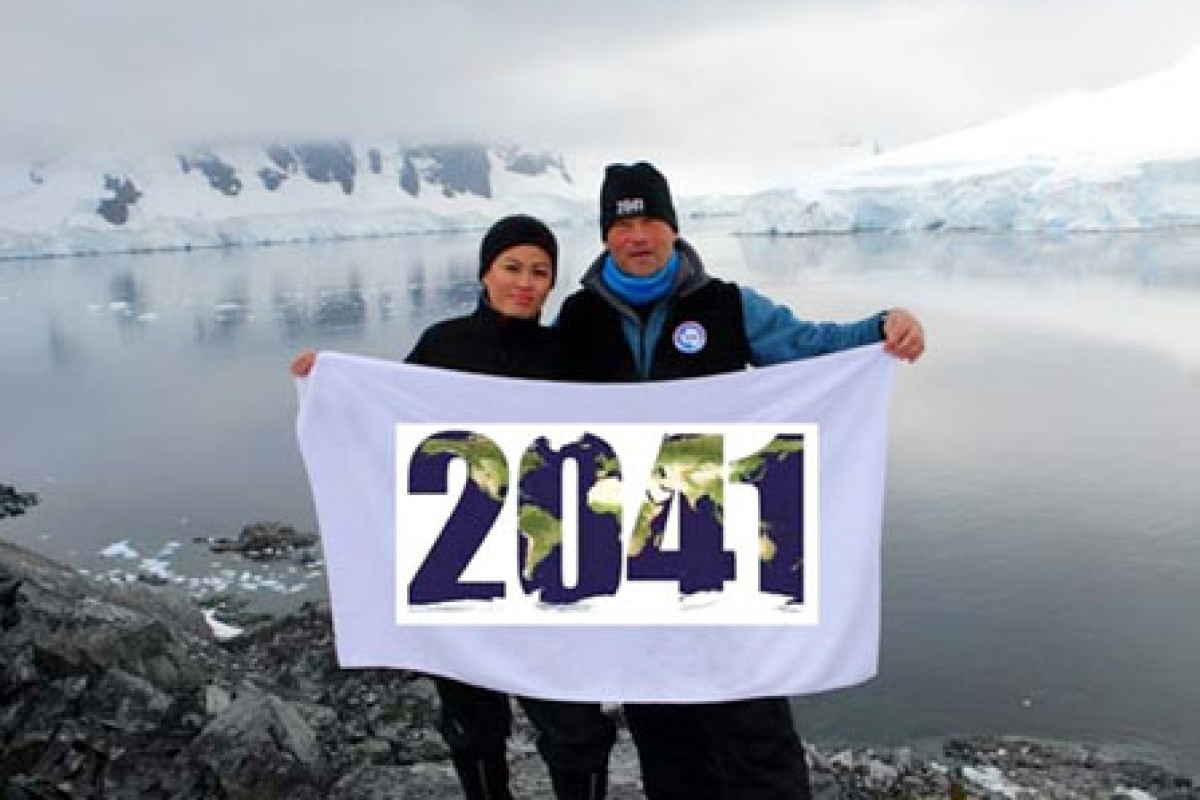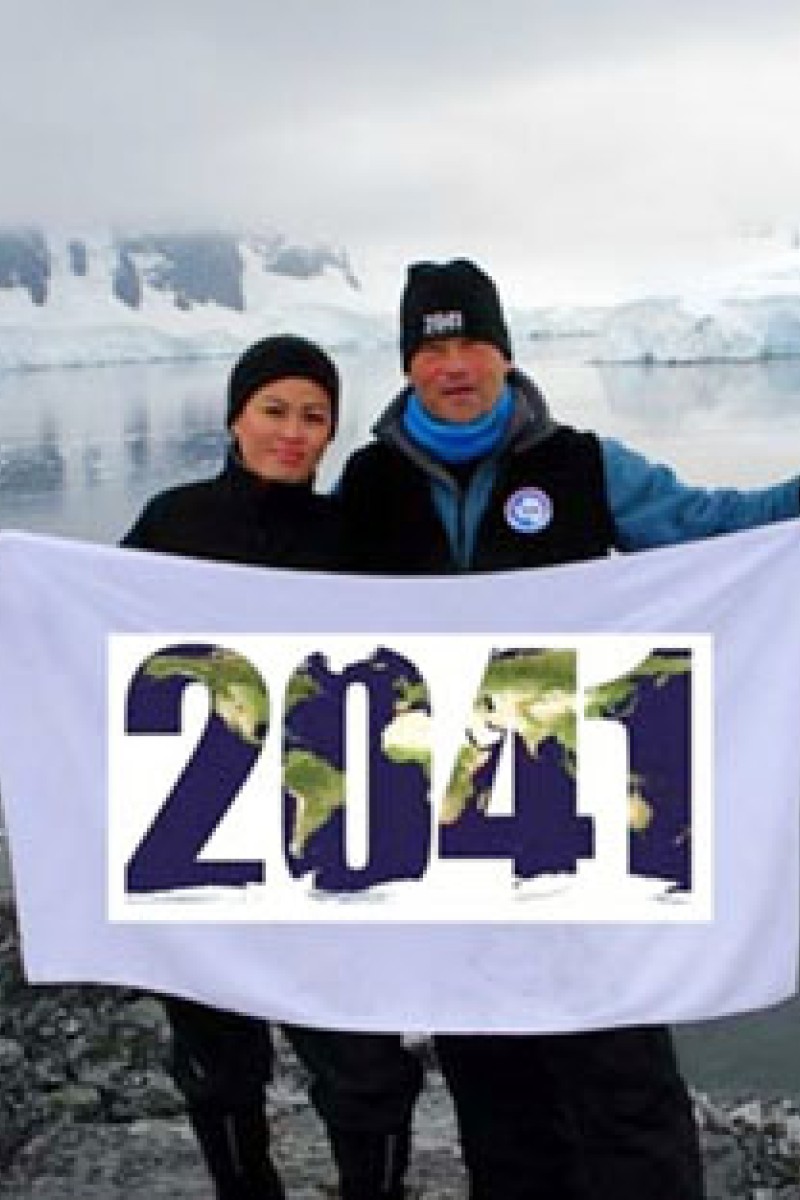 Sophie Tang and Robert Swan in Antarctica.
Sophie Tang and Robert Swan in Antarctica.'I told my boyfriend who was sitting next to me I would be going on the next trip,' Tang says.
Swan is the first person to have walked to the North and South Poles. Swan says his ultimate goal is to save Antarctica.
'He's full of charisma and very approachable,' says Tang, who will take her doctorate in riverine ecology, or the study of the ecosystems of streams and rivers, next year.
Tang has always had a passion for the environment. In Australia, she worked at a company teaching youngsters rock climbing and bush survival - such as how to identify plants and their nutritional values.
'I learned so much about nature and animals, as well as about myself,' she says.
The thought of going to Antarctica fired her imagination and she applied to go on an expedition with Swan's company 2041, which was set up to show people the effects of climate change in Antarctica. In March, she boarded the ship in Argentina, joining a group of 60 people from 20 countries.
'Many of us became sick during the rough passage. But it's the rough weather that protects the environment because so few people can go there,' she says.
'One of my favourite moments was hiking up the glaciers and sitting at the top overlooking the ocean and white mountains. The unbelievable beauty and the utterly quiet surroundings reminded me of the most important things in life and [the need to] be very humble.'
Tang visited E-base, an education centre powered by solar energy which she regards as 'a true demonstration of a sustainable lifestyle'.
But one particularly special moment during her trip stands out in her mind.
'It was around 6.30am and we were sitting on the upper deck of the ship as we sailed across the icebergs,' Tang says.
'I was sitting next to Robert. When I turned around, I saw that he had tears in his eyes and I asked why. He pointed to the icebergs and said he had witnessed a huge difference over a period of about 20 years. Then I realised he had taken us there so that we could see it ourselves. He needed to make sure there were people helping to protect this place.
'Robert puts so much trust in us, which helps me to believe that I have the power to fulfil any dreams even if they may seem impossible.'
After returning to Hong Kong, Tang set up an online scientific database, Greenerworks, with some academics. It provides scientific and environmental news, organises activities and helps students find internships in the environmental field in Asia.
She is also trying to find sponsors for Swan's expedition next year, when he will travel from the South Pole to Cape Evans, near Antarctica, using only renewable energy.
The trip will mark the 25th anniversary of his first walk to the South Pole.
If Antarctica captures your imagination, you could win a trip with Robert Swan's team by entering the Get It Green competition. For details, visit www.getitgreen.hk
<!--//--><![CDATA[// ><!-- PDRTJS_settings_2336426 = { "id" : "2336426", "unique_id" : "default", "title" : "", "permalink" : "" }; //--><!]]>